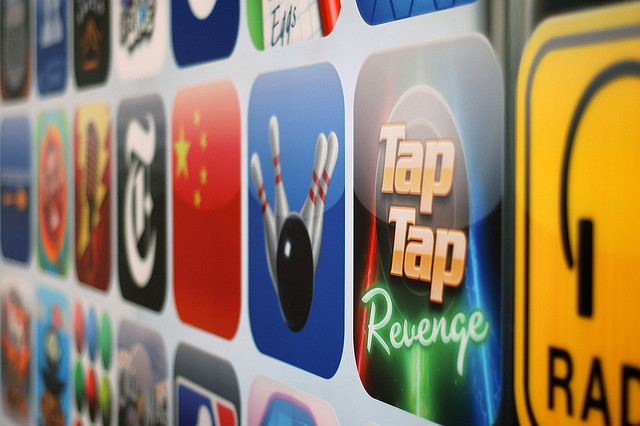 You just launched the 745,872nd app in the app store. Congratulations. Now what?
You just launched the 745,872nd app in the app store. Congratulations. Now what?
With almost 740,000 active apps in the Apple ecosystem and similarly huge numbers in Google Play, how does a mobile app developer stand out? If you’re part of a large company, you might just turn that problem over to the marketing department. Unfortunately, many if not most app developers are small three- to five-person teams.
And that small indie team is exactly who Human Demand is focused on.
“The biggest problem in the market is app discovery,” Human Demand’s chief executive (and prolific angel investor) Howie Schwarz says. “Out of those millions of apps and tens of thousands of developers, only a handful have any marketing people or budget.”
So Human Demand, which launched in private beta in August after being in stealth mode for six months, helps developers advertise their apps — like many other mobile ad services such as JumpTap, AdMob, TapAds, and StrikeAd. But Schwarz says his company’s focus on small independent developers is among his companies’ key differences from its competitors.
“Most mobile media buying is blind … so you don’t know where your ads are running. And smaller developers have no real opportunities due to high minimum buys.”
So Human Demand has built a system for small developers, who don’t even need to register to begin. Developers simply drop in their app store web address, and Human Demand grabs all the relevant data: operating system and device support, app description, images, categories, and more. After setting country, budget, and tracking, the system generates banners for developers (or they can use their own). Add a credit card and the ads start.
“You can see results on each and every app in real time,” says Schwarz. “You see the name of the app where your ad is shown, your cost per install, per publisher, and per app. So instead of setting bid prices you set goals.”
Schwarz says most mobile ad agencies such don’t show the name of the publishers and apps they’re displaying ads in because they don’t want ad buyers to cut out the middleman and go direct. And, he argues, their minimum budgets are much higher.
“We’re for the developer who wants to use their credit card for $50.”
[Editor’s note: I’ve used AdMob for mobile campaigns before, and that service at least allows any size of campaign.]
One question I had for Schwarz was spurious clicks and click fraud, which is an increasing issue. Human Demand handles that concern in a very interesting way.
“Since we’re focused on performance, you’re not buying clicks but impressions and downloads,” says Schwarz. “Our platform is looking for performance, and when it’s not performing, nonperforming publishers are blocked.”
Essentially, Human Demand builds a global blacklist out of the 35 billion bid requests it sees every month, and when it sees either poor performance of bad behavior, the company prefilters the inventory … and simply stops bidding on publishers who don’t generate installs.
It’s a novel approach, and it’s helping double Human Demand’s business month over month.
photo credit: Cristiano Betta via photopin cc
VentureBeat's mission is to be a digital town square for technical decision-makers to gain knowledge about transformative enterprise technology and transact. Learn More

